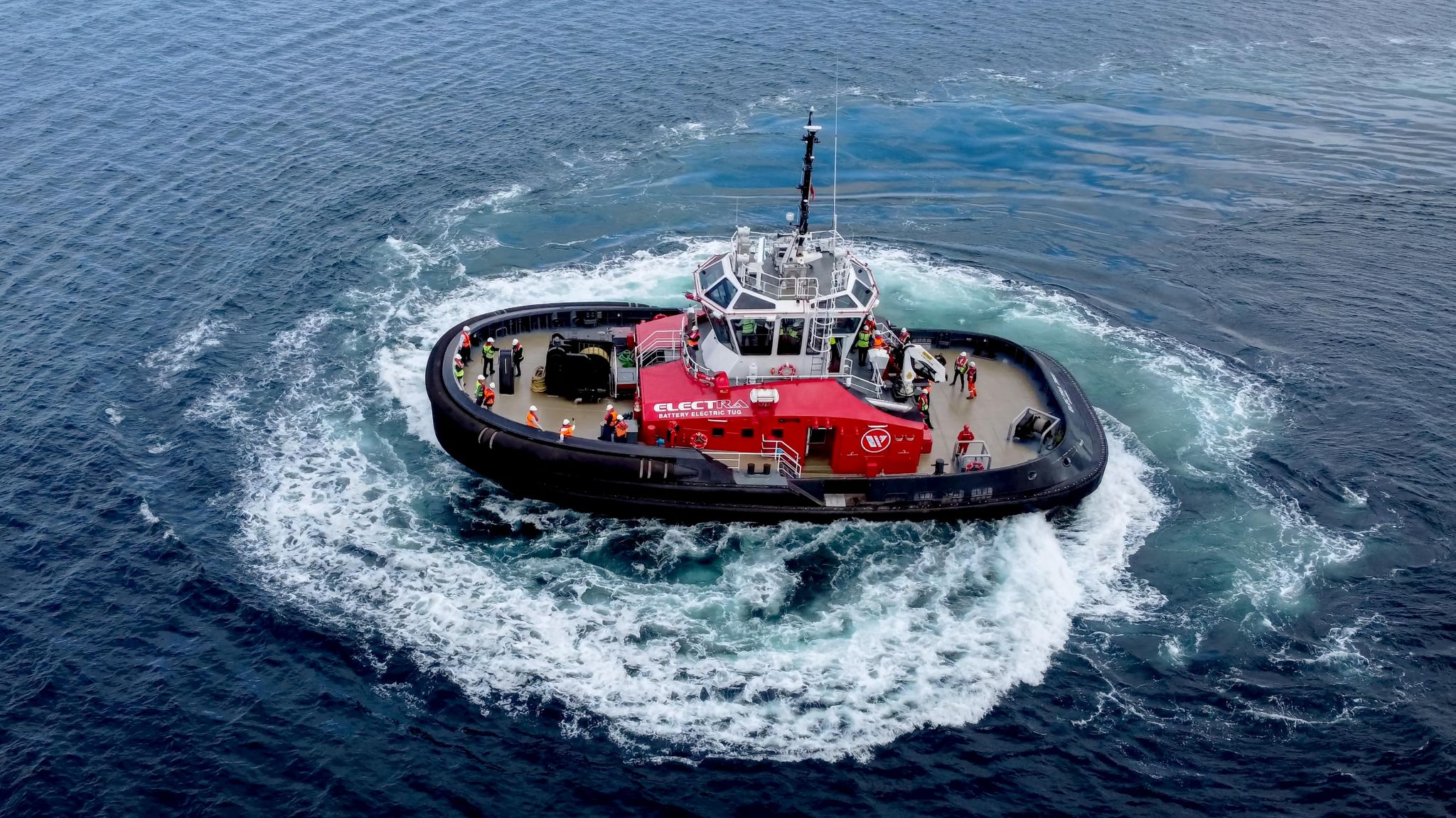HaiSea Marine’s third and final electric tugboat which will serve the Shell-led LNG Canada project is on its way to Canada.
Turkey’s Sanmar Shipyards said in a statement on December 1 it has delivered HaiSea Brave to the joint venture majority owned by the Haisla Nation and partner Seaspan ULC.
The first two ships in this batch of three tugs, HaiSea Wamis and HaiSea Wee’git, are already in Vancouver.
Sanmar built these three tugs as part of a deal for five tugs with HaiSea Marine, which also includes the LNG powered tugs Haisea Kermode and Haisea Warrior, Canada’s first LNG tugboats.
The shipbuilder said that the new tug will work in Vancouver alongside its sister ships before all three – along with the two LNG-fueled tugs – are transferred to LNG Canada’s new export facility in Kitimat, British Columbia.
Like its sister vessels, HaiSea Brave is based on the ElectRA 2800SX design from Vancouver-headquartered naval architects, Robert Allan.
With about 70 tonnes bollard pull, a top speed of 12 knots, and 6,000 kWh of battery capacity, it will perform all ship-berthing and unberthing missions on battery power alone, Sanmar said.
Taking advantage of the hydroelectric power available in Kitimat, it will be able to recharge from dedicated shore charging facilities at its berth between jobs, the shipbuilder said.
LNG Canada
Construction of the tug berth facility started in early 2023 and is scheduled to be fully completed in early 2024, LNG Canada previously said.
LNG Canada said the new tug berth is essential to operation of the escort tugs and harbor tugs that will provide ship-assist and escort towing services to LNG carriers calling at LNG Canada’s export facility.
The first phase of the giant LNG Canada project includes building two liquefaction trains with a capacity of 14 mtpa in Kitimat.
The construction of the plant was about 85 percent complete in July and during the same month it completed LNG tank hydro testing at the project site in Kitimat.
Shell and its partners in the project expect to deliver the first cargo by the middle of this decade, and they are also evaluating the second phase of the project.
Other partners include Malaysia’s Petronas, PetroChina, Japan’s Mitsubishi Corporation, and South Korea’s Kogas.

